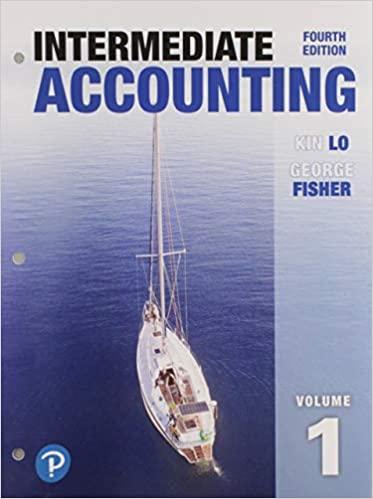Question
You, the CPA, an audit senior at Green & Co., CPAs, are in charge of this years audit of SuperFlix Corporation (SFC). SFC is a
You, the CPA, an audit senior at Green & Co., CPAs, are in charge of this years
audit of SuperFlix Corporation (SFC). SFC is a rapidly expanding, diversified, and
publicly owned entertainment company with operations throughout Canada and the
United States. SFCs operations include movie theatres, live theatre production,
and television production. It is June 22, Year 7, the week before SFCs year-end.
You meet with the chief financial officer of SFC to get an update on current
developments and learn the following. SFC acquires real estate in prime locations
where an existing theatre chain does not adequately serve the market. After
acquiring a theatre site, the company engages a contractor to construct the theatre
complex. During the year, the company received a $2 million payment from one
such contractor who had built a ten-theatre complex for SFC in Stratford. This
payment represents a penalty for not completing the theatre complex on time.
Construction began in June, Year 6, and was to have been completed by
December, Year 6. Instead, the complex was not completed until the end of May,
Year 7. When you return to the office, you discuss the aforementioned issues with the
partner in charge of the SFC audit. She asks you to prepare a report on the
accounting implications of the issues you have identified as a result of your
meeting. When the accounting for an individual transaction has not been specified,
you should indicate how it should be accounted for and the impact that the
accounting would have had on the key metric(s). You are encouraged to refer to CPA Handbook for guidance. Incorporate IFRS 15.
Sample response:
Issue: Revenue Recognition for Soorya
Soorya can record revenues at point of shipment, cash collection, after return period is expired, or
proportionately at each stage in the earnings process.
Risks and rewards are transferred at point of shipment since terms are FOB Ship Point and Soorya
retains no managerial involvement in the process after shipment.
It can be argued that shipping is not the significant act for Soorya. Rather acceptance by the
customer is required for a sale to occur. Revenue could therefore be recorded when cash is
received since that signifies customer acceptance. Also, revenue could be recorded at the end
of the return period since that too signifies acceptance by the customer.
Additionally, the amount of revenue to record is not known at point of shipments since upto 45%
can be returned and upto 6 months later. This can create significant volatility in revenues and
hence the management bonus.
However, Soorya does have reliable operating experience such that the amount of returns and bad
debts can be estimated. As such, revenues can be recorded at point of shipment with a
provision accrued for returns (e.g. likely 15% based on experience) and bad debts (e.g. based
on the 90 days days sales outstanding.
Step by Step Solution
There are 3 Steps involved in it
Step: 1

Get Instant Access to Expert-Tailored Solutions
See step-by-step solutions with expert insights and AI powered tools for academic success
Step: 2

Step: 3

Ace Your Homework with AI
Get the answers you need in no time with our AI-driven, step-by-step assistance
Get Started


